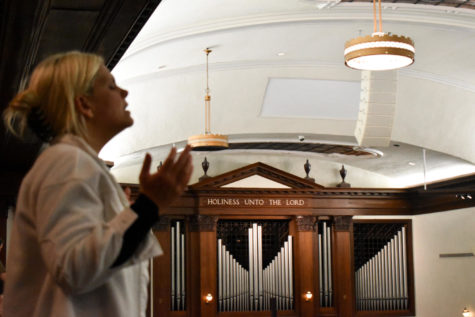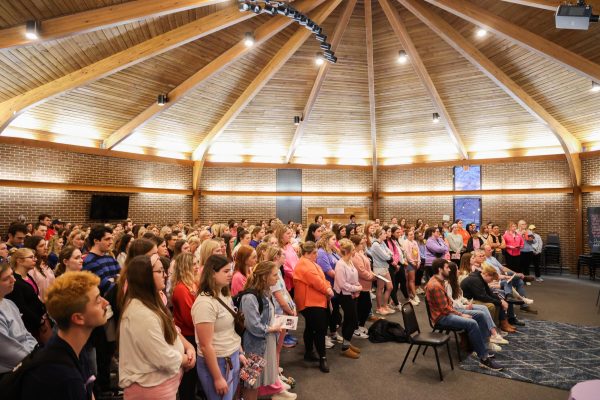Students speak in defense of older dorms
April 24, 2016
As the end of the semester quickly approaches with an onslaught of exams and late-night study sessions, students located on UK’s south campus will soon be facing the end of an experience that will no longer be offered at the university.
In recent years UK has built and opened several residence halls that offer numerous amenities and new equipment.
However, with the rise of these innovative areas, traditional-style dorms, characterized by shared bathrooms and two or more students living with one another in a single space, are becoming less frequent on campus, and will soon be discontinued altogether.
Natalie Jehn, psychology freshman and current resident of Blanding IV, said living in a traditional-style dorm is important, especially for first-year students, because the living arrangements allow for greater communication between residents that may not necessarily occur in the newer dorms.
“Almost being forced to talk to each other in the dorm allows you to open up more, and ultimately college is a time to make you more outgoing,” Jehn said. “I have friends in Woodland Glen who don’t ever talk to their roommate because they have separate bedrooms.”
For nursing sophomore Kori McKee, the biggest difference between living in newer dorms and the traditional dorms, like Kirwan and Blanding, is the sense of community that residents build with one another.
“When I was living in Haggin my first semester, I felt very anonymous,” McKee said. “Then when I lived in Kirwan II, … it is a completely different world.”
According to communication professor Alan DeSantis, this feeling of community in the traditional dorms and having the ability to communicate on a greater level with fellow residents may be because of the different structures that each room has.
“When the doors forcefully shut behind you, there is a harder chance to build comradery and friendship,” DeSantis said. “On looking at the older dorms, they do not face this problem as students are able to keep their doors open.”
In an effort to keep these dorms on campus, students have offered numerous ideas to implement in the residence halls that have been a big part of their college experience.
Brittany Sulzener, a graduate student, said by adding newer equipment and decor to the residence halls, students would have a greater opportunity to enjoy them.
“I think refurbishing the dorm would be a good idea for the university,” Sulzener said. “Even small things like new carpeting and updating paint and fixtures would help a lot.”
In addition, Sulzener said taking away these housing options would reduce the number of affordable places to live on campus.
“That disadvantages students who may not have as much money to pay for housing,” she said.



















































































































































